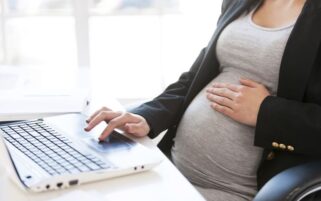Routine asymptomatic Covid testing of NHS staff and patients has ended as of this month across all parts of health and social care, alongside all PCR Covid testing outside NHS settings.
The UK Health Security Agency said the changes would ensure testing continues to focus on those at highest risk, enables appropriate clinical treatment and supports the management of outbreaks in high-risk settings.
Lateral flow testing will continue for some NHS staff with symptoms working on inpatient wards with severely immunosuppressed patients, staff with symptoms working in hospices, for anyone who has symptoms and is eligible for Covid-19 treatment and all patients being discharged from hospitals into care settings, UKHSA said.
Outbreak testing with lateral flow kits will also be done in the NHS and other care settings as well as for some hospital patients with symptoms where it is needed to inform decisions such as ward transfers.
UKHSA said over the past year, Covid-19 testing has gradually been scaled back as its severity and impact on the NHS has reduced.
Testing in England can now be further aligned with the approach to other common respiratory infections as a result of the vaccination programme, increased access to therapeutic treatments and high immunity amongst the population, the agency added.
PCR testing will continue to be used by the NHS for diagnosis where it is needed for specific clinically directed care and capacity will be retained if this needs to be scaled up once more in response to a new wave, variant or pressure on the health service.
It comes as an overview of the evidence of the use of masks in mitigating Covid-19 transmission in healthcare settings found it is still the case that N95 respirators (or equivalent) may be more effective than surgical masks in reducing the risk of infection in the mask wearer.
But the evidence base is poor and more research is needed to assess the effectiveness of respirators versus surgical masks in reducing SARS-CoV-2 infections in healthcare workers in real-world settings.
UKHSA chief executive Dr Dame Jenny Harries said: ‘Fewer people now experience severe illness due to Covid-19 due to vaccinations, infection-related immunity and treatments for those who need them and the risk of hospitalisation has decreased overall.
‘This means we are now able to further bring our testing programmes in line with management of other viral infections whilst still maintaining focus on those at highest risk to protect them from the virus.’
It comes as children aged six months to four years will now be eligible for a Covid vaccine for the first time if they are clinically vulnerable.
The Joint Committee on Vaccination and Immunisation (JCVI) has recommended that children under five years who are in a clinical risk group as outlined in the Green Book should receive two 3-microgram doses of the Pfizer-BioNTech vaccine.
NHS England has confirmed it will begin offering vaccinations to those eligible in England from mid-June and said parents should wait to be contacted before coming forward.
More guidance on a potential third dose in children who are immunosuppressed will follow in due course.
A version of this story was first published on our sister title Pulse.



